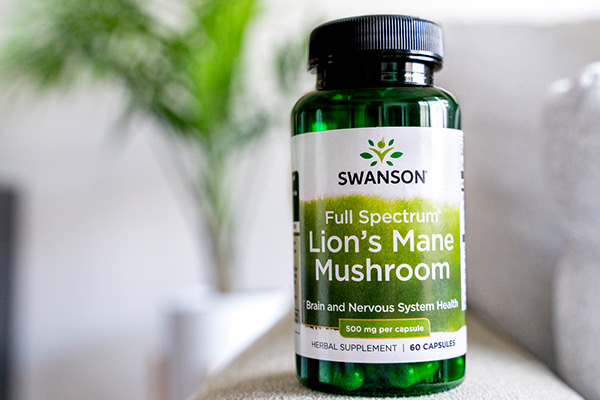The Benefits of Phosphatidylserine
Supporting and maintaining cognitive health over the long term involves healthy habits, in addition to making sure your body has the nutritional support it needs to function properly. If you’re wanting to bolster your cognitive and brain health, a great place to begin is by considering if the benefits offered by phosphatidylserine may be right for you.
What is Phosphatidylserine?
In the simplest terms, phosphatidylserine can be thought of as a phospholipid, a fatty substance which helps encapsulate the nerve cell walls in the brain, thereby providing added protection. Along with providing protection, phosphatidylserine benefits also include helping those nerve cells relay information—an important part of maintaining cognitive function over time.1
Who Should Take Phosphatidylserine?
The benefits of phosphatidylserine, such as enhanced memory support and generally bolstered cognitive health, are something many people may want to promote in their own health routines. Broadly speaking, phosphatidylserine may be used by most adults, after consultation with their healthcare provider, but it is most often taken by older populations with the intention of promoting a healthy aging process and long term cognitive health.2
The Benefits of Taking Phosphatidylserine
Research into the benefits of phosphatidylserine continues to shed new light on this amazing substance and the ways in which our bodies, and minds, can enjoy better health through supplementation. Currently, phosphatidylserine benefits include:1
- Cognitive function—focus, concentration and a feeling of clear headedness4
- Stress relief—promoting a sense of calm and a positive mood
- Enhanced memory support—bolstering recall and the formation of short- and long-term memories3
- Improved sleep—aiding in enjoying deeper, more restful sleep
- Locomotor functions—supporting rapid reactions and reflexes3
- Other cognitive challenges which may be identified by medical professionals
- Sports performance—promoting muscle comfort and supporting endurance5
Food Sources of Phosphatidylserine
Some common food sources of phosphatidylserine include:1
- Fish
- Eggs
- Soybeans
- Animal organs such as beef or chicken liver
Side Effects of Phosphatidylserine
Phosphatidylserine as a supplement has not received FDA approval to treat diseases but is generally regarded as safe to use.1 People with certain conditions or who take certain prescription medications should discuss possible side effects of phosphatidylserine with their doctor before adding a supplement form to their daily regimen.2
In some cases, side effects of phosphatidylserine may include:1
- Upset stomach/gas
- Headache
- Insomnia
Phosphatidylserine has shown promising results in many studies, both human and animal, over the years and is well known for its benefits and use by the body for promoting cognitive health—especially over time. Try it for yourself and see what phosphatidylserine can do for you!
You be well, now
Swanson
*These statements have not been evaluated by the Food and Drug Administration. These products are not intended to diagnose, treat, cure, or prevent any disease.
Sources
- Phosphatidylserine. Cleveland Clinic. Read source
- Phosphatidylserine. New York University Dept. of Surgery. Read source
- Phosphatidylserine and the Human Brain. Nutrition. Read source
- Efficacy of Phosphatidylserine. Aging. Read source
- Phospholipids and Sports Performance. Journal of the International Society of Sports Nutrition. Read source



